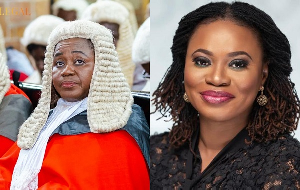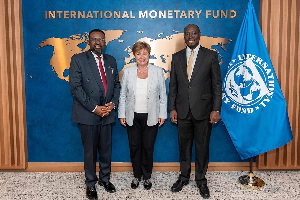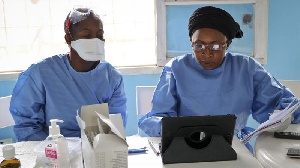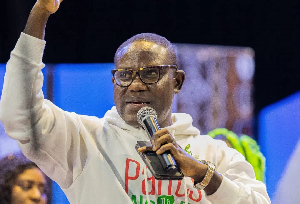The 2024 Ghanaian election, became a battleground not just for political parties, but also for a different kind of contender: self-proclaimed prophets. Numerous prophecies regarding the outcome flooded the airwaves and social media, painting vivid, often contradictory, pictures of the future.
However, at the end of the elections, the inaccuracies and outright failures of some of these predictions became apparent, leaving several prophets facing public ridicule and questioning their credibility.
The Ghanaian populace, deeply religious and often seeking divine guidance, eagerly consumes these prophecies. Many look to them for comfort, reassurance, or even a glimpse into the political landscape. This reliance, however, makes the inaccurate predictions even more damaging, eroding public trust not only in the prophets themselves but also in the institutions that often give them a platform.
Several prominent figures, claiming prophetic abilities, offered bold pronouncements about the election's outcome. Some confidently predicted landslides for specific parties, naming specific candidates as guaranteed victors. Others prophesied unexpected alliances, dramatic shifts in public opinion, or even divine intervention influencing the results.
These prophecies, often delivered with theatrical flair and accompanied by dramatic pronouncements of God's will, garnered significant media attention, sparking intense public debate and fueling speculation.
The problem, however, lies in the inherent lack of accountability within the realm of prophecy. Unlike scientific predictions, which are constantly tested and refined, prophetic pronouncements often escape scrutiny. When a prophecy fails to materialize, the prophet frequently offers explanations ranging from a "misinterpretation of the divine message" to claims that the prophecy was thwarted by human intervention or unforeseen circumstances. This lack of accountability allows for a self-perpetuating cycle of predictions, regardless of their accuracy.
The consequences of these failed prophecies are multi-faceted. Firstly, they contribute to public cynicism and disillusionment. When individuals consistently rely on predictions that prove false, their trust in the prophetic voice erodes, potentially affecting their faith in other matters. Secondly, these inaccuracies can fuel social unrest. False prophecies predicting electoral violence, for instance, could contribute to fear and anxiety, even if such violence is never intended. Furthermore, the dissemination of false information through prophecies could sway public opinion, undermining the democratic process by influencing voters based on inaccurate information.
The media also bears some responsibility. The eagerness to report on sensational prophecies, regardless of their validity, inadvertently amplifies their reach and impact. The pursuit of sensationalism often overshadows journalistic responsibility to verify the claims and assess their credibility. A more critical approach, including fact-checking and contextualisation, is necessary to prevent the spread of misinformation.
Ultimately, the failure of numerous prophecies regarding the 2024 Ghanaian elections serves as a cautionary tale. It highlights the need for critical thinking and responsible media consumption. While faith and spirituality hold significant importance for many Ghanaians, blind faith in unsubstantiated prophecies can be detrimental to individuals and society as a whole.
The path to informed decision-making, particularly in the context of a crucial election, lies in engaging with reliable information sources and fostering a healthy skepticism towards extraordinary claims. The results of the December 7 polls have undoubtedly revealed further inaccuracies, reinforcing the necessity for a more discerning approach to prophetic pronouncements.
Watch as Parliament pays tribute to late Ghanaian boxing legend Clement Ike Quartey Snr
Opinions of Thursday, 19 December 2024
Columnist: Anthony Obeng Afrane















